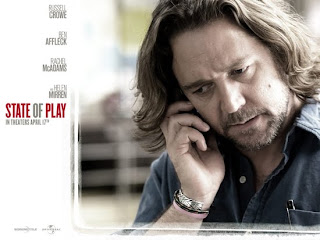As its title suggests, Zombieland is about a version of earth overrun with flesh-eating zombies. The handful of remaining normal people are constantly running for their lives, trying to avoid being eaten by gangs of ravenous, blood-thirsty monsters. The film never explicitly explains why most of earth’s population has turned into zombies, but only makes vague references to a devastating virus that spread to its first victim via an infected cheeseburger.
Jesse Eisenberg and Woody Harrelson play a pair of plague survivors named Columbus and Tallahassee, respectively. The film opens with a voiceover by Columbus as he provides background on both Zombieland and on his life before and after the plague. Columbus has always been a loner and that fact, combined with his above-average intelligence, has helped him remain uninfected; he’s also developed several pragmatic rules for surviving Zombieland, the most important of which are amusingly illustrated in the opening minutes.
Those rules include: maintain good cardiovascular fitness (anyone too overweight to outrun zombies doesn’t survive long); always wear a seatbelt (sudden stops and crashes are common); 'double tap' every kill (verify each by shooting/stabbing/pummeling/crushing twice); don’t be a hero; be wary of bathrooms (zombies love to catch you with your pants down), and a host of others, which are continually alluded to throughout the film.
Columbus is working his way from Austin, Texas—where he attended college—through the wasteland the world’s become, to Columbus, Ohio, where he hopes to find his parents alive. Early on he meets Tallahassee, a cantankerous, savvy southerner with a dark sense of humor who gives Columbus a ride but insists that neither reveal his true name; relationships in Zombieland tend to be extremely fleeting and Tallahassee wants to avoid unnecessary attachments. As a result, everyone is named based on their destination.
Tallahassee is so good at killing zombies that he sees it as his true calling, the one pursuit in life he's truly good at that his momma always said he’d discover. And indeed, watching Harrelson tear through the landscape, dispatching zombies with one creative, gruesome method after another is a large part of the film’s charm. Tallahassee’s also on a personal quest to find and consume the world’s remaining edible Twinkies, another amusing detail effectively incorporated into the story.
Along their journey, Tallahassee and Columbus meet Wichita (Emma Stone) and Little Rock (Abigail Breslin), two sisters who initially dupe the pair out of their ride and weapons and leave them stranded. A little later, fate bring brings the foursome back together though, and forces an uneasy alliance that gradually evolves into a familial-type bond. After learning that Columbus, Ohio is destroyed, the four change course and head for Los Angeles so Little Rock can visit a theme park there she’s always dreamt of experiencing.
Beyond being a horror/comedy hybrid, at its heart, Zombieland is also a road-trip movie that, at times, feels as directionless as its characters’ odyssey. However, although it wouldn’t stand up to serious critical analysis, Zombieland isn’t built to resonate on any deep intellectual level. This film is all cartoonish violence, gallows humor, adrenaline and visceral thrills. To those ends, it’s reasonably effective.
Harrelson’s fun to watch; his goofy, hammy presence alone is worth the admission price; the rest of the cast is solid too. For all its comic ambitions though, Zombieland’s best laugh comes from a hysterical cameo by Bill Murray. Ultimately, although Zombieland doesn’t break new ground in the zombie genre, it’s moderately entertaining and is best appreciated as a visceral, comedic thrill-ride.
Score: 6/10
Starring: Woody Harrelson, Jesse Eisenberg, Emma Stone, Abigail Breslin
Directed by: Ruben Fleischer
Released by: Columbia Pictures














